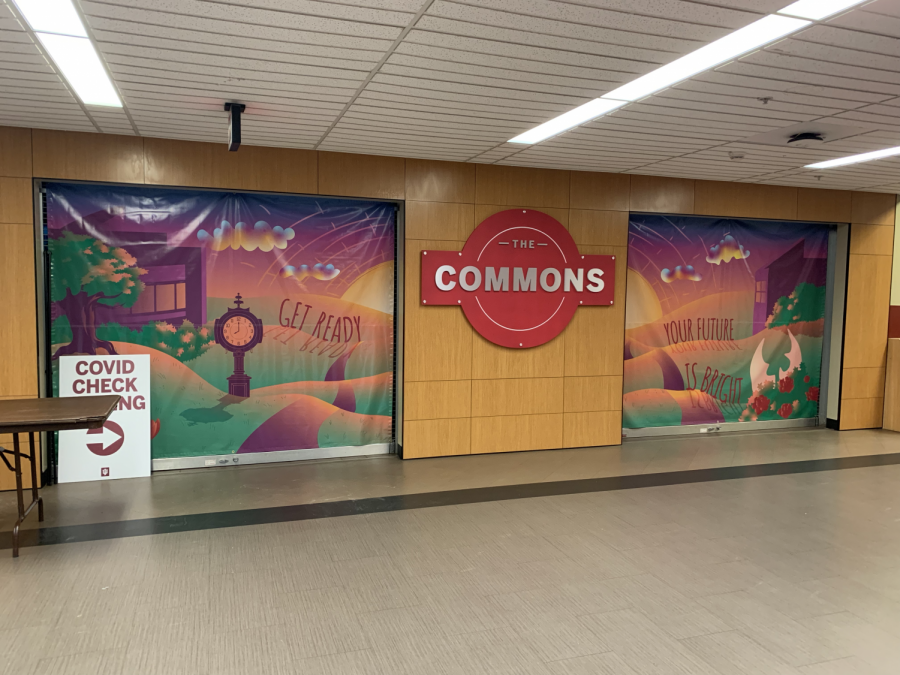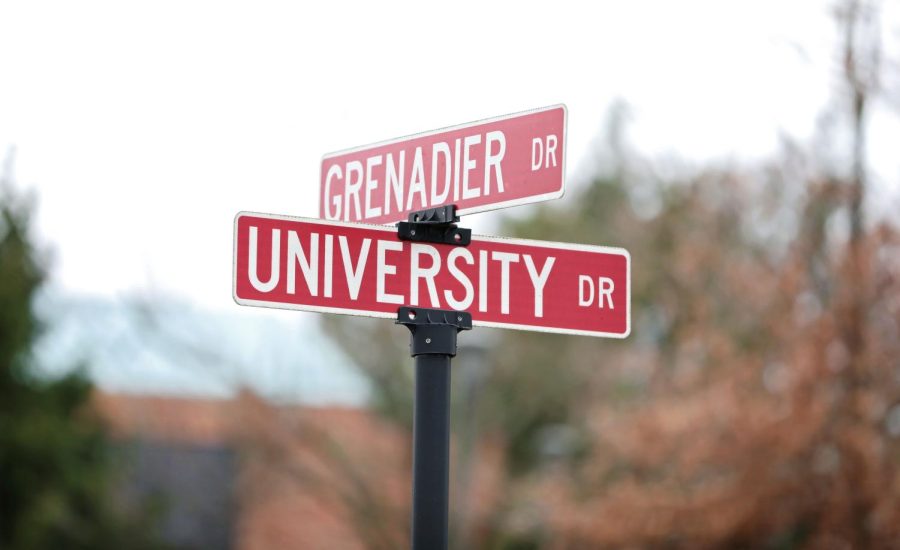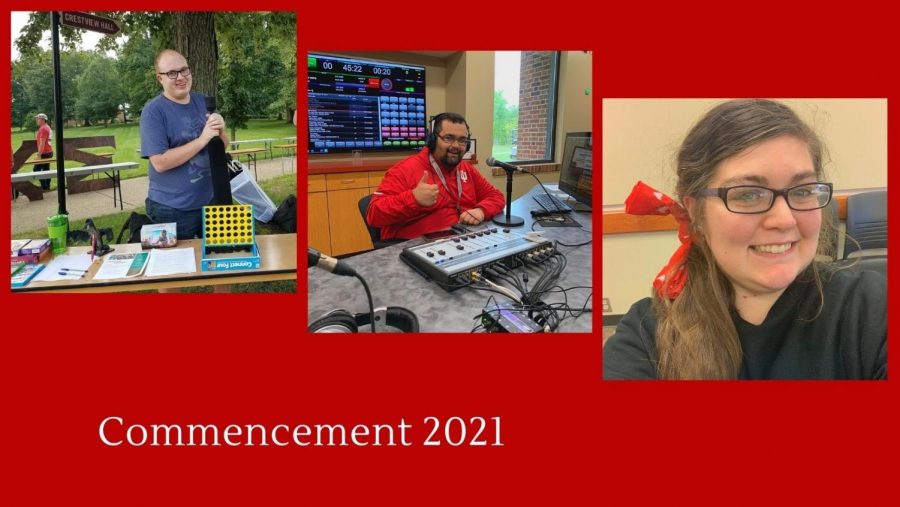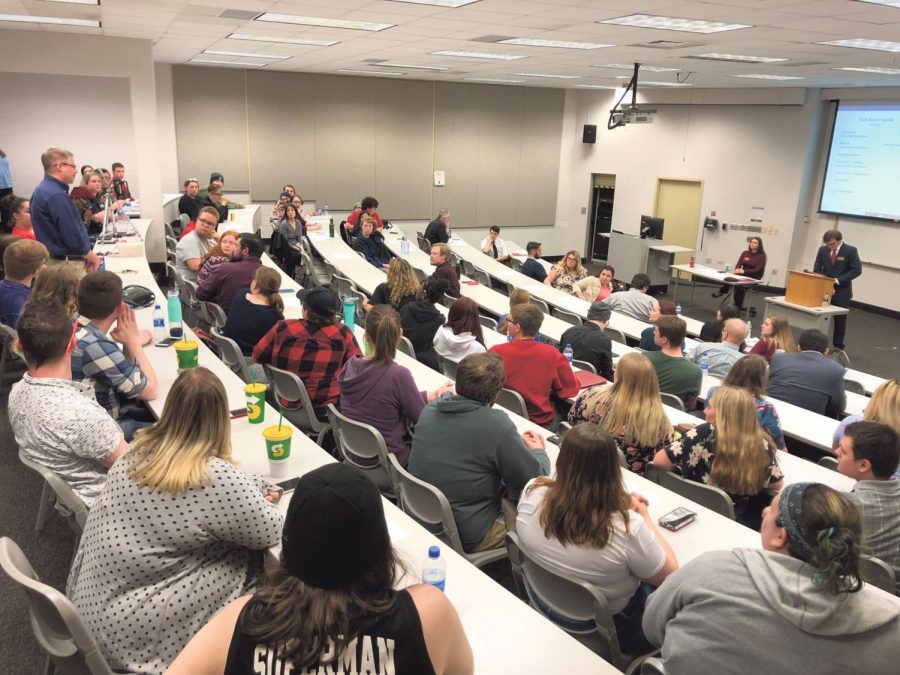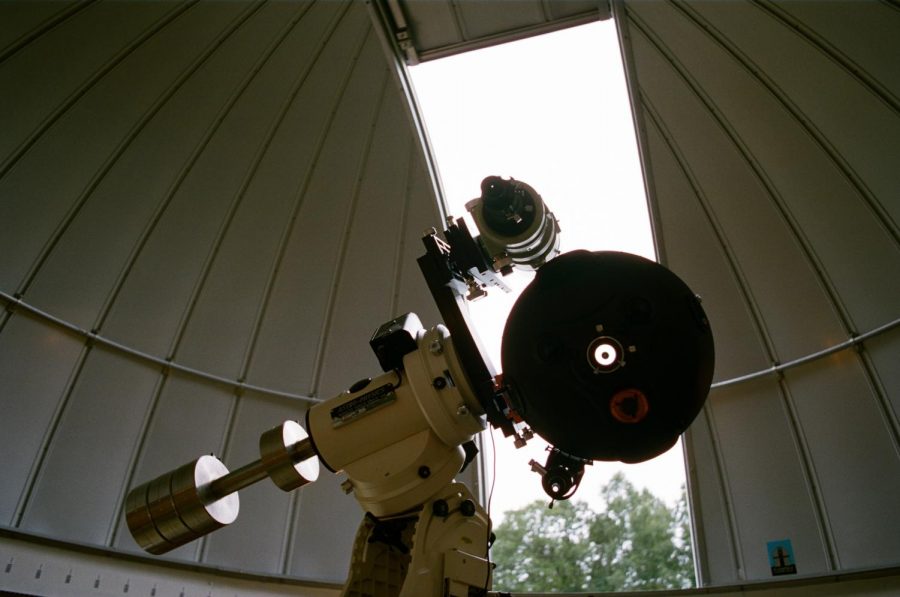
When thirteen-year-old Mary Beth Tinker and other students decided to wear black armbands to school in 1965, they did not consider that it would launch them into a landmark Supreme Court hearing or earn them a place in the history books.
On Oct. 9 2013, Tinker and Student Press Law Center attorney, Mike Hiestand, visited IU Southeast as part of the Tinker Tour USA, which is a project of the Student Press Law Center. The goal of the tour is to promote youth voices and teach people about the importance of First Amendment rights. During her visit, Tinker shared her story with students and community members.
The year was 1965, and each night,Tinker said she and her sister would watch Walter Cronkite report the death toll in Vietnam.
“We would see the bombs, the huts on fire,” Tinker said. “It seemed like the whole world was on fire.”
After attending a peace rally in Washington, D.C., Tinker said her mother, older brother and his friends felt that they should do something to promote peace in Iowa, where Tinker and her family lived.
“We talked about peace all the time at home,” Tinker said. “But on T.V., all we saw was war and killing.”
After considering their options, Tinker’s family and friends decided to silently protest the war by wearing black armbands. However, a couple of days before the protest was set to begin, the schools in the area announced a new school policy that banned students from wearing black armbands to school.
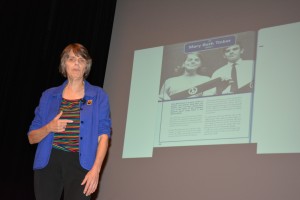
Tinker and other students decided to wear the armbands to school despite the policy, and many of them were suspended for it. After Tinker and her brother were suspended, they met with an ACLU lawyer who helped take the case all the way to the Supreme Court.
The court ultimately ruled in favor of Tinker and the other students. With a ruling of 7-2, the Supreme Court ruled that students and teachers in public schools do not, “shed their constitutional rights…at the schoolhouse gate.”
Since the ruling in 1969, the case of Tinker v. Des Moines has been considered a high mark of student free speech. The case has been so influential that Tinker is listed as No. 91 in the book “101 Changemakers: Rebels and Radicals Who Changed U.S. History” by Michelle Bollinger and Dao X. Tran. The case also appears in several textbooks.
“I made it up there with Helen Keller,” Tinker said.
During the presentation, Student Press Center lawyer, Mike Hiestand, shared stories of his experiences during the Vietnam War. As a young child, he recalls his uncle being killed. He also shared the experience of wandering into his parents’ bedroom the night before his father shipped off to find his worried parents crying and holding each other.
“When you feel something from so deep within – from the core of your heart – you need to say what you need to say,” Hiestand said. He said adults tend to tell children that, “everything is okay,” when in reality, children know that everything is not okay.
Hannah Egger, undeclared sophomore, said she thought the presentation was inspiring.
“I loved that she promoted open conversation,” Egger said.
Jennifer Moulden, retired community member, said she read about the event in the newspaper and was excited to hear a presentation about First Amendment issues.
“I am not disappointed I came,” Moulden said. “It’s important to remember that children to have rights.”
During the presentation, Tinker reminded the audience to exercise their rights. As a nurse, Tinker often compares rights to muscles.
“If you don’t use them, you can lose them,” she said.
Tinker said she is concerned about the health of young people, and she thinks that a lot of young people are, “getting a raw deal.”
She said she wants people to talk openly about public health issues, especially issues that impact the younger generation.
“I want to promote the well being of young people,” she said. “They need a say in the decisions that affect their lives.”
Tinker also said that once students learn their rights, they become more aware of censorship and realize that there is no black-and-white solution.
“Students are persons!” Tinker said during the presentation. “You’re persons with fundamental rights that must be respected.”
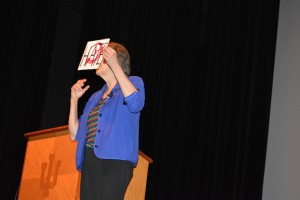
Tinker said she did not consider herself as a brave person when she was younger. She admired her brave parents who worked to end racial discrimination and promote peace.
“My parents were brave, but I wasn’t like that,” she said.
In fact, when Tinker decided to break the school rules, she was afraid. She did not want to get in trouble, she said.
However, Tinker encouraged people to continue to challenge rules and laws.
Tinker said she is inspired by the students she has met that are speaking out for their rights. During her tour, she has met several students that are facing censorship issues.
“I could tell you stories all day,” she said.
IU Southeast was one of more than 50 stops on the Tinker Tour. Hiestand and Tinker will continue to travel across the country promoting students rights and free speech.
For more information about the Tinker Tour, visit tinkertourusa.org.


